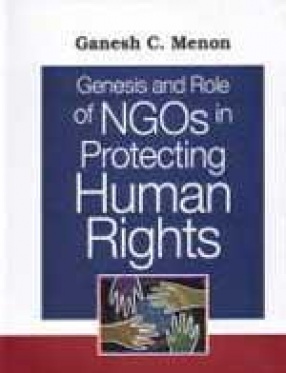Human Rights NGOs cannot be studied as isolated organizations. They deliberately try to impact on societies–and are themselves affected by social norms. They seek to change government policies or halt their human rights abuses–and are themselves subject to political pressures. They form parts of transnational advocacy networks, increasingly linked electronically to other NGOs. This work emphasizes human rights NGOs, which have been traditionally separated from relief, humanitarian assistance, and development-oriented NGOs. A set of three volumes begin with background of human rights over past half century to various global justice initiatives, general awareness, obstacles, opportunities and move to functional rights and limitations of Non-Government Organizations after Genesis of NGOs and the UN. It gives focus issues for human rights NGOs. Planning and strategy are introduced and effectiveness of International Human Rights NGOs is discussed in the light of diplomatic approach, human rights approach and Asian Value Systems. Later it covers global dominance and Non-Western Attitudes toward human rights, evaluation of some NGOs like human rights watch, amnesty international and ford foundation etc. along with challenges of abuses and misuses of rights. Numerous cases have been taken into account from various parts of Asia and Africa regarding minority rights, ethnic tensions and conflict prevention, morality and global security, genocide and accountability and suppressing NGO voices at the United Nations. Final chapters deal with measuring the impact of human rights organisations and state of human rights in the age of the internet and modern society. On the whole, however, this set has offered important observations about the significant roles NGOs have played in promoting and protecting human rights.
Genesis and Role of NGOs in Protecting Human Rights (In 3 Volumes)
In stock
Free & Quick Delivery Worldwide
reviews
Bibliographic information
Title
Genesis and Role of NGOs in Protecting Human Rights (In 3 Volumes)
Author
Edition
1st ed.
Publisher
ISBN
8178885948
Length
864p.
Subjects





There are no reviews yet.